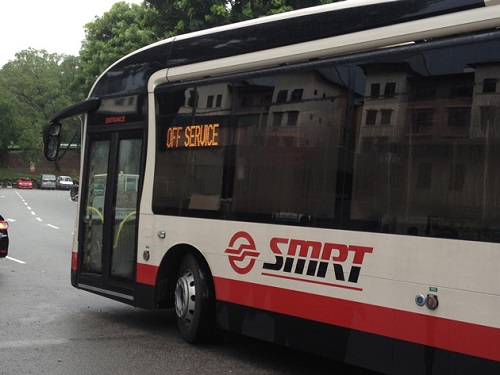Earn as much as $3,500 a month as a bus driver – or for a PR term, bus captain. That’s the message SMRT intends to drive home.
That will include overtime pay, allowances and money for meeting performance targets. There is also the prospect of being promoted to master bus captain.
No doubt, this move is to recapture some of the lost ground when 171 SMRT bus drivers from China went on strike last November over poor pay and living conditions.
And also attract young Singaporeans to join as bus drivers. The bus operator should be congratulated for taking this initiative.
While it’s clear that this scheme is to retain existing bus drivers and attract fresh blood, a disturbing question remains unanswered: How many hours longer do drivers have to drive before they can lay their hands on that $3,500 pie?
Already, SMRT’s bus drivers work nine hours a day. They also work six days a week.
Given that the average age of a SMRT bus driver is 55 years. That’s 10 years shy from the national retirement age of 62.
Factor in health, vision and age-related issues, a bus driver is likely to quit by 57.
A US study has found that having a longer commute is linked to heart problems, high blood pressure and obesity – not surprising, since driving longer hours means cutting some slack on one’s daily exercise routine.
The next logical course of action is to woo young Singaporeans to sign up as bus drivers. But with an increasingly educated and discerning young generation, how many would choose to be a bus driver early in their careers unless they’re nearing retirement? And is the SMRT Bus Captain scheme really attractive?
As someone who holds a class three licence, I’ve found driving to be both physically and mentally tiring, let alone maneuvering a bus along Singapore’s perpetually congested roads for 54-hours (or more!) every week. You also cannot afford to think of other things while driving and let your temper get the better of you, or else you might risk getting into an accident and facing the music for it.
It looks like the bus company is going back to square one on this. The young are unlikely to bite and the older ones will think twice before wanting to work longer hours to get that $3,500.
If SMRT is sincere in raising the salaries of its bus drivers, the company would have already done so and without increasing their working hours. Compared to SBS Transit, which implemented a progressive career scheme in May 2012 to enable bus drivers displaying capability and potential to rise within the organisation, one can infer that SMRT is either trying to play catch up, or show face.
Another question: what will this increase in manpower cost mean? Higher fares? Let’s hope the Public Transport Council and the Ministry of Transport will not say yes.


